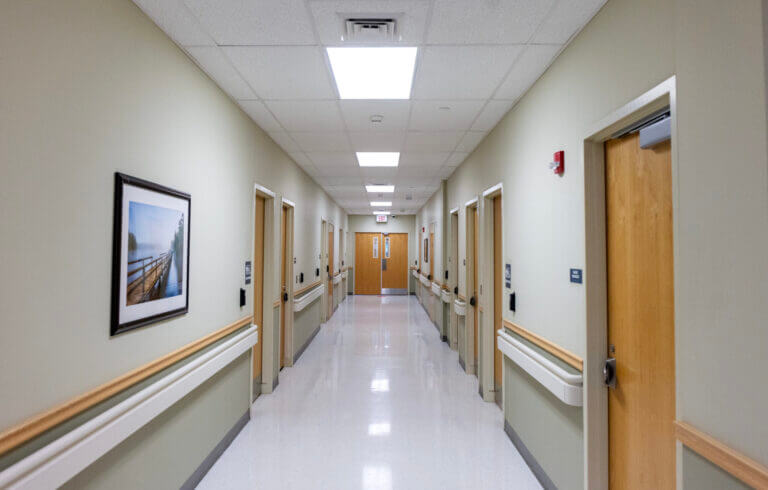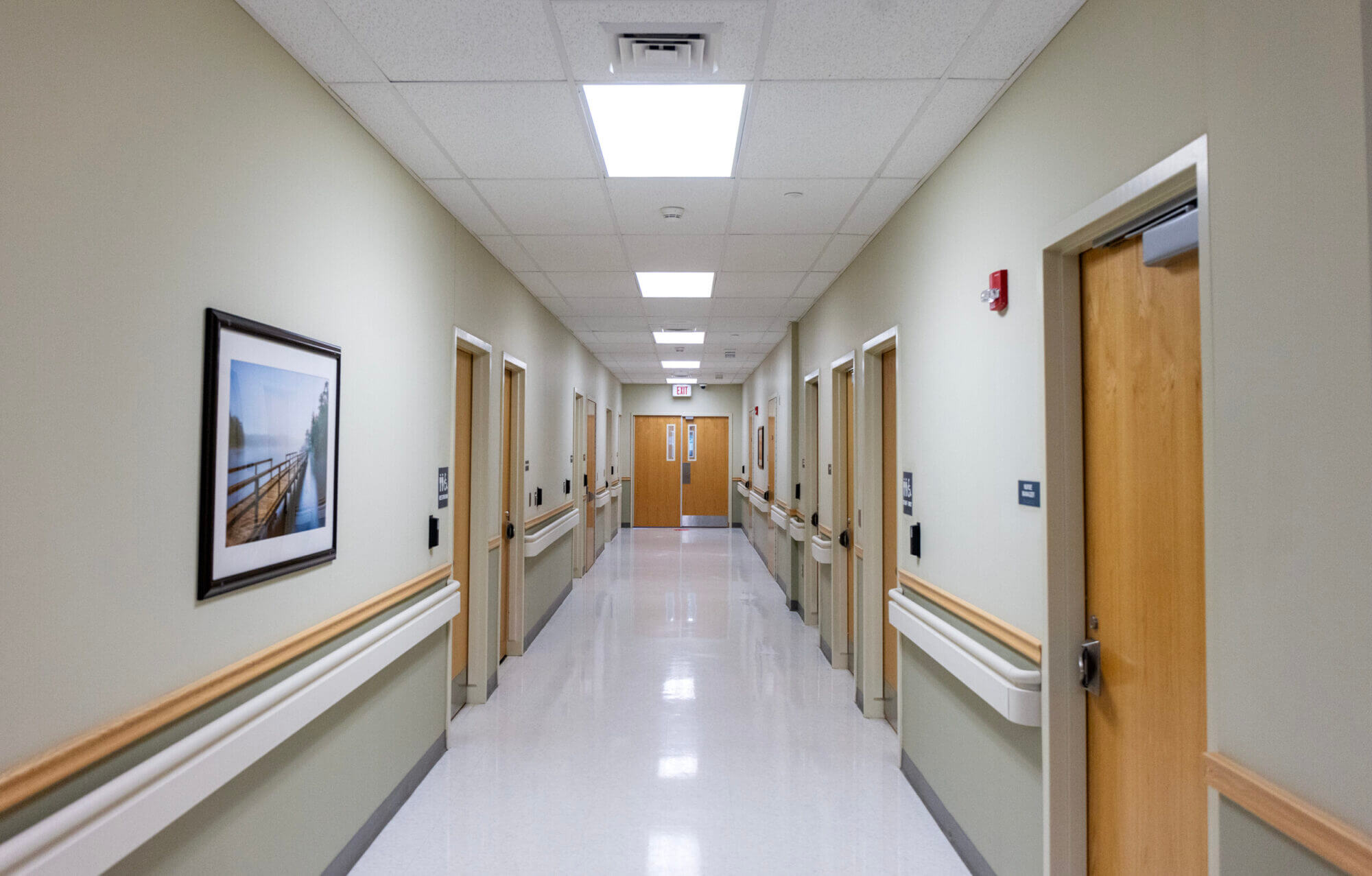

Editor’s note: This essay is part of Mississippi Today Ideas, a platform for thoughtful Mississippians to share fact-based ideas about our state’s past, present and future. You can read more about the section here.
After reading about Katina Rankin’s “degrading” hospital stay, I felt compelled to do three things: (1) offer her my sincerest apologies, (2) share my perspective from a family member of a patient who was recently in two Mississippi hospitals and (3) propose a cost-effective solution to keeping our hospitals open.
Ms. Rankin, thank you for sharing your story. You stated that you almost did not write about your experience, but I am so thankful that you did. It gave me, and I am sure others, a very candid picture of what it felt like to be in your shoes.
When you shared that you “dragged” yourself to the restroom after waiting 15 minutes after pressing the call button for assistance, I visualized that scene and felt your distress. While you did not get the care that you deserved, I am respectfully answering your call by first saying that I am truly sorry about your experience. While our health care system has problems, it also has the potential to be greater, and it will take courageous patients like you to share their stories to strengthen our hospitals, not tear them down.
Not to belittle Ms. Rankin’s experience, but I must share a completely different perspective after spending over two months in the hospital with my aunt. It is important to note that our experiences are mutually exclusive of illness and other circumstances. However, both are based on our own personal interactions and observations, which shaped our realities.
On Aug. 23, my reality was that my aunt was critically injured in a car accident that took the life of her sister. That evening, my aunt was airlifted to a Level 1 trauma center where she was placed on life support. At this very critical and early stage of her care, there was nothing that the doctors or nurses could do other than pray, keep her comfortable and provide regular updates on findings from her lab work, scans and X-rays, which they did with intellect, grace and compassion.

Once my aunt was able to tolerate being off the ventilator for several hours, she was transferred to a long-term acute care hospital where her care and recovery were remarkable.
As soon as I entered this hospital, I was visually reminded of the true healer in health care by Bible scriptures on the walls, including the 23rd Psalm, which reads, “The Lord is my shepherd, I shall not want.”
Considering that my aunt was indefinitely confined to a hospital bed, I did not want her progress to be further complicated by pressure sores. Thanks to the attention, skill and compassion shown by her staff, she did not develop any ulcers in her over two-month hospital stay.
Each time I pressed the call button for assistance, within five minutes, either a nurse or an aide arrived to help. It is important to note that their response and care were without their knowledge of my background in health care.
Ms. Rankin stated that she waited for 15 minutes after pressing the call button for help. Although there is no universal standard for response times after a call button has been pressed, a 2012 study by “BMC Health Services Research” found that the quicker the response time, the lower the rates of falls and associated injuries.
Considering that Ms. Rankin carried her IV pole with her to the restroom, and further, with an unspecified neurological condition, those responsible for her care would have a lot of cleaning up to do had she fallen.
Ms. Rankin identified several problems during her hospitalization, including personal cell phone use by hospital staff. A 2024 study published in “Hospital Topics” found that personal cell phone usage by nurses “is a barrier to effective nursing care in hospitals.” This risk also opens the door to medical malpractice lawsuits when patient safety is compromised; a problem that we do not need, especially when so many of our hospitals have closed and others are at risk of closing.
Ms. Rankin also found that compassion and communication skills among the hospital staff were lacking. Additionally, she characterized emotional intelligence, also known as emotional quotient. A 2025 overview of EQ by “Cleveland Clinic” explains that this quotient allows us to “respond and interact with others in a way that’s honest, reflective and respectful,” components that Ms. Rankin says were also missing during her hospital stay.
Patients such as Ms. Rankin have every right to report these and other weaknesses within our health care settings. However, we must use these experiences to strengthen our health care system so that all Mississippians can receive exceptional health care that will put us at the top, not the bottom of national rankings.
As a family member of a patient of two Jackson-based hospitals that graciously aided in her recovery, I have hope that we are still the “City with Soul,” although with the unfortunate experiences of Ms. Rankin, it may not always be so obvious.
As we have learned from Ms. Rankin, our health care system does need improvement, such as health care workers responding efficiently and therapeutically to the needs of their patients. What was a “degrading” experience for her, just may be the defining moment for health care providers to develop a universal response time to call button activations.
Perhaps, the optimal response time could be five minutes or less as in the case with my aunt. However, further research is needed to develop evidence-based practices.
Ms. Rankin, based on my answer to your call, I hope that it is clear that you and all Mississippians are important to me and that our hospitals need both patients and providers to survive. Again, I am sorry about your negative hospital stay experience and you have my prayers for a full recovery.
We’re all a part of God’s body. The act of fostering compassion, emotional intelligence, and therapeutic communication does not cost a thing to start making small but significant improvements in our complex health care system.
The transformation that we seek will also require others sharing their stories, whether positive or negative to move Mississippi forward.
Bio: LaKeisha J. Crye is an educator, sociologist, registered nurse and advanced practice registered nurse. She is a board-certified psychiatric mental health nurse practitioner and the owner of a private mental health practice in Clinton. She is pursuing a doctor of nursing practice in an executive leader program and a doctor of philosophy in marriage and family therapy with a concentration in systemic studies.
Disclaimer: The ideas and opinions expressed in this essay are solely those of LaKeisha J. Crye and do not represent any board, organization, agency or institution.
- State fire marshal is investigating troubled Unit 29 at Parchman prison - February 26, 2026
- Mississippi’s Winter Storm Fern losses exceed $107 million, state insurance department says - February 26, 2026
- DNA evidence linked to a Greenville homicide is missing. Now the finger-pointing begins - February 26, 2026